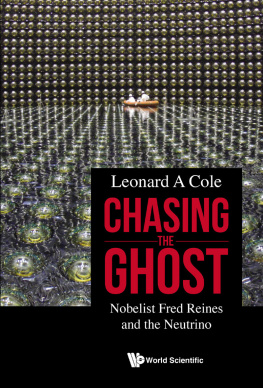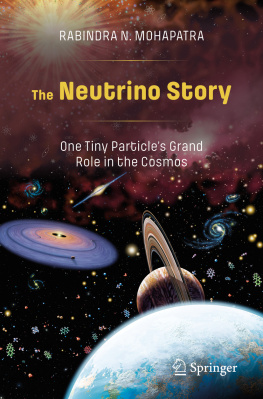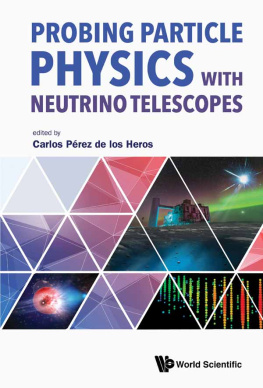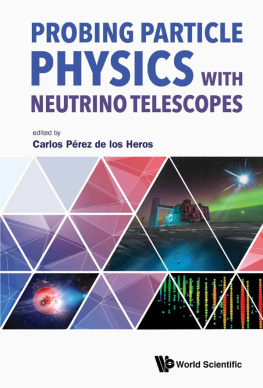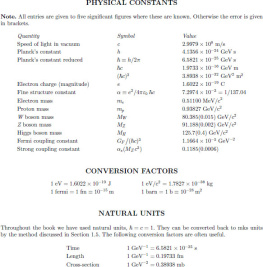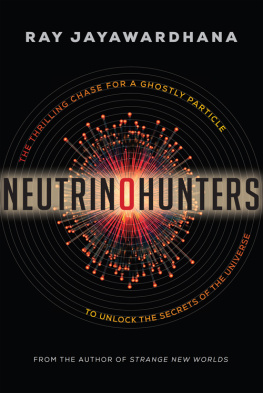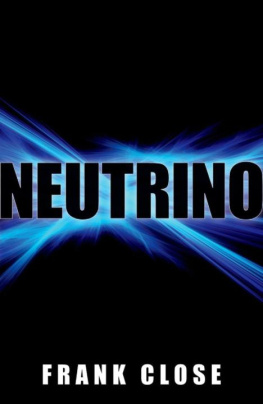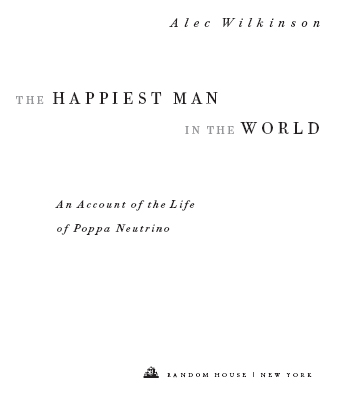
Contents
For my wife and son,
and our friend
Alexandra Truitt
The port we sail from is far astern and, though far out of sight of land, for ages and ages we continue to sail with sealed orders and our last destination remains a secret to ourselves and our officers. And yet our final haven was predestined ere we stepped from the stocks of creation. Let us not give ear to the superstitious gun-deck gossip about whither we may be gliding for, as yet, not a soul on board of us knowsnot even the commodore himselfassuredly not the chaplaineven our professors scientific surmisings are in vain. On that point, the smallest cabin boy is as wise as the captain.
HERMAN MELVILLE, WHITE JACKET
They went to sea in a sieve, they did.
In a sieve they went to sea:
In spite of all their friends could say,
On a winters morn, on a stormy day,
In a sieve they went to sea!
And when the sieve turned round and round,
And everyone cried, Youll all be drowned!
They called aloud, Our sieve aint big,
But we dont care a button! we dont care a fig!
In a sieve well go to sea.
EDWARD LEAR, THE JUMBLIES
PART ONE
Chapter 1
D AVID PEARLMAN WAS sitting under a pine tree in Flagstaff, Arizona, when he thought of the play, in July of 2004. He was living, with his dog, in a white minivan that was nine years old. The van had been a gift, a few months earlier, from a woman and her husband whod befriended him in Key West, Florida. They had also given him the dog. Shortly before he met them, Pearlman had undergone a reversal of fortunea favorable arrangement he believed he had struck had dissolved instead, leaving him destitute. He was seventy-one years old.
Pearlman was fifty when he was bit on the hand by a dog, in Mexico. For two years he was so sick that he assumed he would die. When he recovered, he felt so different from who he had been that he thought he should have a new name. He began calling himself by the first one that came to him: Poppa Neutrino. A neutrino is an itinerant particle so small that it can hardly be detected. Pearlman incorrectly believed that its existence was theoretical. The name appealed to him, because, being suppositional, the particle represented the elements of the hidden life that exert their influence discreetly. Also, because of the particles capacity for unremitting movement. Mr. Neutrino is nomadic. I once unfolded a map of the country and asked him to trace the routes he had traveled, and before he had completed the first twenty years of his life the pen had worn through the paper.
The vans backseats Neutrino replaced with a platform on which he laid three squares of foam for a bed. All the windows except the front ones he covered with duct tape, and behind the drivers and passengers seats he strung a curtain, so that anyone who looked in the van while he slept would think that it was empty. At the end of June, he and his dog, a female Boston terrier, left Key West for California. Attached to the van was a trailer on which sat a crudely made raft that Neutrino had built from plywood. Some of the wood he had bought, and some he had scavenged from construction sites. The raft was twelve feet long and four feet wide, and it had a small cabin. People who saw it did not usually conclude that it was a raft. It looked like a tree house, or possibly a shed for poultry. It did not look like anything that would float.
On the passengers side of the van, in letters about a foot high made with rubbery, black tape, Neutrino had written KEY WEST TO CUBA. He planned to sail to Cuba from California, through the Panama Canal. Crossing the country, though, he had thought that he might prefer sailing west, across the Pacific by himself, something that had been accomplished on a raft only once, by William Willis, in 1964, when Willis was seventy years old. In 1947, Thor Heyerdahl, the first modern man to sail some ways across the Pacific on a raft, sailed, with five companions, aboard the raft Kon-Tiki, from Peru to Polynesia. Neutrino regarded Willis and Heyerdahl as heroes.
Neutrino drove to Los Angeles and left the raft at a friends house. His wife, Betsy Terrell, who had for several months been visiting her family in Maine, called his cell phone and said that she wanted to drive out west and see him before he left. They met in Phoenix then retrieved the raft, then drove to the mountains outside Flagstaff to escape the desert heat. Neutrino now felt that if he could make it across the Pacific he could continue around the world and return to Key West. No one has ever sailed around the world on a raft.
The play came to Neutrino intact and all at once, as a species of epiphany. He had begun by thinking what would happen if all the players but the quarterback ran to the same part of the field, and the ball was lobbed to them. Would the barrier of players enclosing the receiver be sufficiently thick that none of the defenders could prevent his catching the ball? And would their approach to the goal line be slow but inexorable? Over the years Neutrino had occasionally amused himself by trying to invent a football play that couldnt be stopped. None of the ones he had concocted, however, had held up when he looked at them closely. When the play occurred to him, he saw exactly how it would unfold, and no means by which it could be prevented.
On the back of an envelope, Neutrino wrote the names of the teams he wanted to have use the play, then he went to the library in Flagstaff and looked up their phone numbers. The woman who answered the phone at Notre Dame said that the coach would call him, but he didnt. Neutrino then called the Arizona Cardinals of the NFL, the University of Illinois, Washington State University, Boston College, the University of Kentucky, Columbia University, and California State University, Fresno. At one of the colleges he reached an assistant coach. He said that his name was Poppa Neutrino and that he had a play that would take the team to the Rose Bowl. He said, Please dont hang up on me, and the man hung up.
Eventually, Neutrino called the University of Arizona, in Tucson. The year before, their team, the Wildcats, had won two games and lost nine. All eleven coaches had been fired. A receptionist told Neutrino that someone would call him back. The next afternoon someone didMike Canales, the new quarterback coach. The season before, Canales had been a coach on the staff of the New York Jets. Neutrino explained the play to Canales, and Canales invited him to meet the next morning at the student center. For fear that Canales might withdraw the invitation, Neutrino did not tell him he was calling from Flagstaff, 250 miles away.
Neutrino drove through the night to reach Tucson. He walked around the campus until it was time to meet Canales. After they had talked for a while and Neutrino had drawn the play for Canales on a napkin, Canales asked Neutrino if he was free to attend the University of Arizonas training camp, in August. In terms of innovation, Canales said, the play struck him as being equal to the forward pass.
Neutrino drove back to Flagstaff. He told Terrell that he was going into football, and she said, Im sure youll do well at it. In a few days, she returned to Maine to study for a masters degree in education.
Neutrino felt that Tucson in August would be too hot for the dog to live in the car. To raise money for a hotel room, he decided to sing for change on the street, in Los Angeles.
Next page

